The Agrisolar Cooperative Research Centre (CRC) Bid Group, a consortium of 64 domestic and international partners, have bid for federal government funds to support the development of an national agrisolar cooperative research centre.
To incorporate multiple hubs around the country in support of cementing social licence into the development of agrisolar, the Agrisolar CRC in association with the Land and Primary Industries Network (LPIN) from the New South Wales (NSW) Decarbonisation Innovation Hub, is hosted at the Western Sydney University (WSU) and has collectively bid for $40 million (USD 25.9 million).
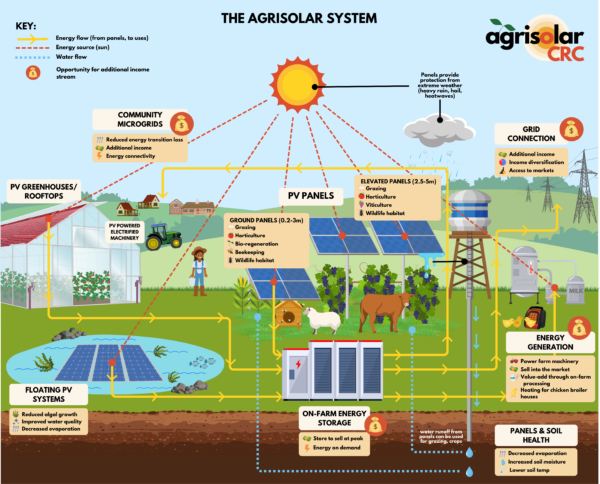
Image: Agrisolar CRC Bid Group
Agrisolar CRC Bid Group Director Dr Liz Smith told pv magazine CRCs must be industry led by design and farmers and agricultural proponents of the bid group, particularly groups like Farmers for Climate Action and their members, are considered the group’s lead industry.
“The industry problem to be solved really rests in the fact that Australian agriculture is trapped in quite a fraught public discussion around the adoption of renewable energy with solar energy production in rural landscapes at the forefront of that debate,” Smith said.
“So the university sees a key benefit to being involved in terms of the possibility to shine a light on projects that have positive outcomes in order to dispel myths and ground truths, important findings where we can improve the baseline and move forward together.”
Smith said energy proponents seeking to deploy PV panels over agricultural land face perceptions for solar infrastructure that its an eyesore, it takes up agricultural land and has minimal local benefit.
“By withholding this social licence to operate the conflict around the end use is ongoing and that’s where we see the key industry challenge that’s where we see the CRC as the only appropriate mechanism to help solve it by embedding resolution in truth.”
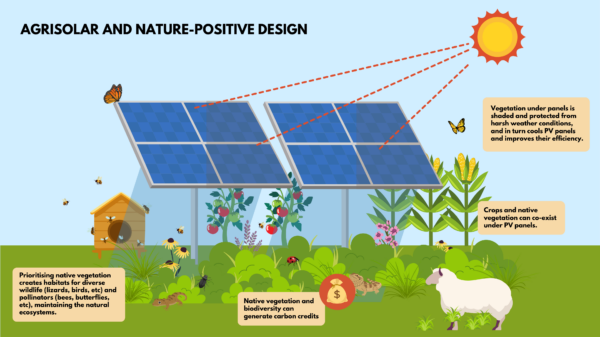
Image: Agrisolar CRC Bid Group
Smith said answers to the social licence problem can be found in agrisolar approaches, which embeds solar technology with farming in ways that combine energy generation with productive and profitable farming, as well as farm benefits to local people and businesses.
“We consider agrisolar to be a very broad application and in the consortium of partners we consider agrisolar to be any application of solar photovoltaic technology in a farming context, and vice versa, any application of watercultural, agricultural farming practices within a utility scale solar context, so we are also tending to look at behind-the-meter solutions, off-grid, etc,” Smith said.
“If we don’t, we leave certain industries behind, particularly the dairy industry and poultry, and if we look at agrisolar as a possible sovereign-made sector, we have a job ahead of us to establish a value chain, where every component of these industries must be accounted for, and that’s where our 64 coalition-strong partnership comes in.”
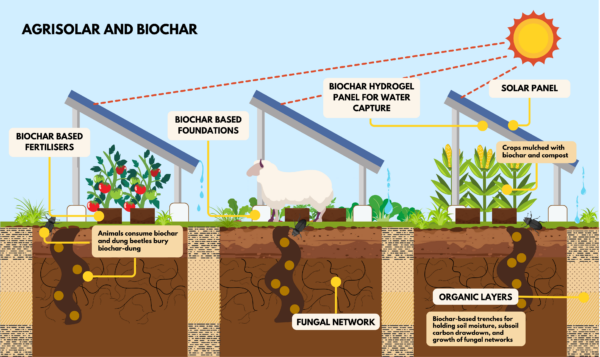
Image: Agrisolar CRC Bid Group
This content is protected by copyright and may not be reused. If you want to cooperate with us and would like to reuse some of our content, please contact: editors@pv-magazine.com.
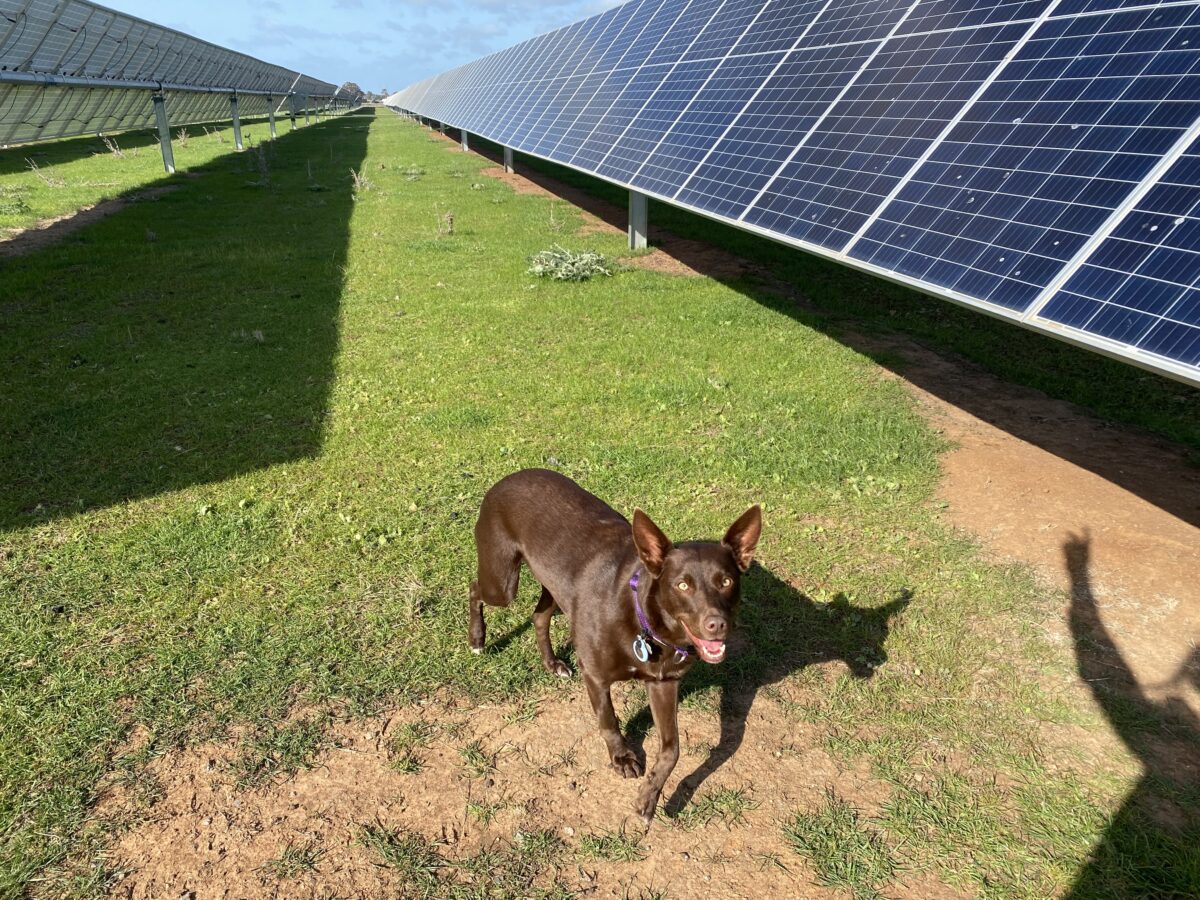
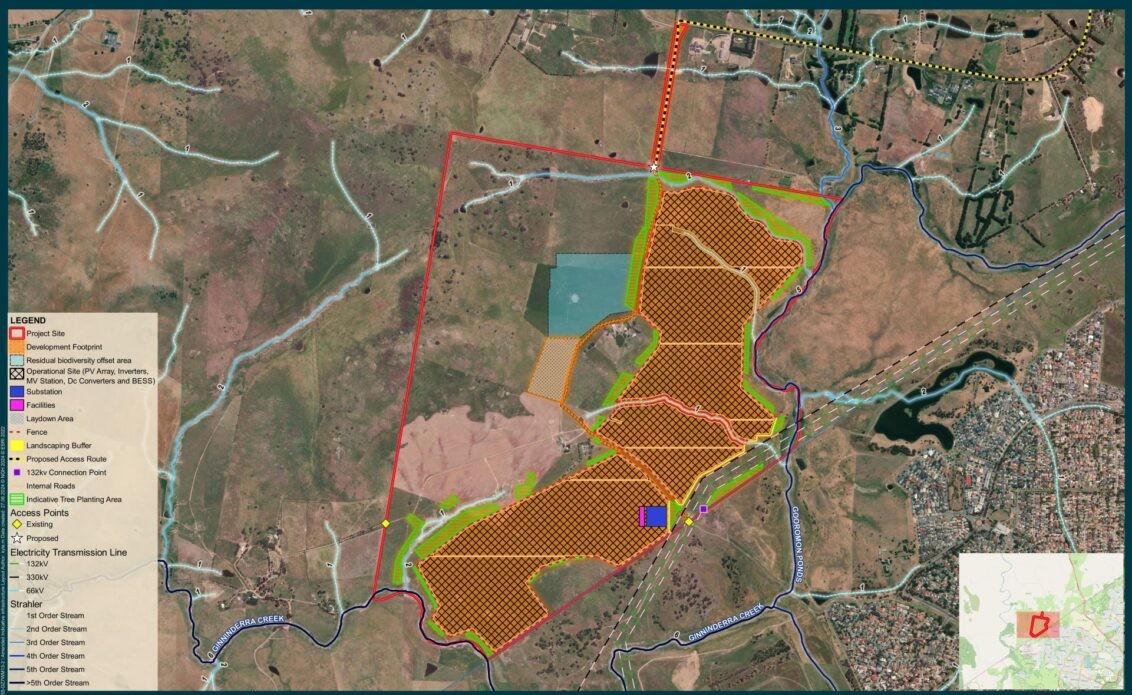







By submitting this form you agree to pv magazine using your data for the purposes of publishing your comment.
Your personal data will only be disclosed or otherwise transmitted to third parties for the purposes of spam filtering or if this is necessary for technical maintenance of the website. Any other transfer to third parties will not take place unless this is justified on the basis of applicable data protection regulations or if pv magazine is legally obliged to do so.
You may revoke this consent at any time with effect for the future, in which case your personal data will be deleted immediately. Otherwise, your data will be deleted if pv magazine has processed your request or the purpose of data storage is fulfilled.
Further information on data privacy can be found in our Data Protection Policy.